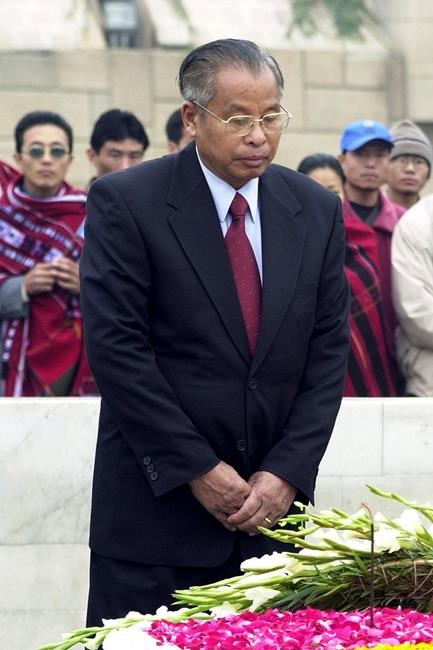Elevate your local knowledge
Sign up for the iNFOnews newsletter today!
Sign up for the iNFOnews newsletter today!
Selecting your primary region ensures you get the stories that matter to you first.

GAUHATI, India – Isak Chishi Swu, a militant leader of the Naga tribal insurgency, died Tuesday without being able to see his people reach a long-negotiated peace accord with the Indian government. He was 87.
Swu’s death from multiple organ failure followed a prolonged illness during which he was hospitalized for nearly a year in New Delhi, according to K. Mere, spokesman for the northeastern Indian state of Nagaland.
Fellow rebel leaders mourned Swu’s death, calling him a hero in the fight for a separate homeland for the 35 Naga tribes in the region.
“A pall of gloom has descended among our people,” said D.G. Robert, one of the leaders of the rebel groups co-founded by Swu. “Isak was a true visionary leader.”
Swu was born in Nagaland, near the border with Myanmar, when India was still part of the British Empire. A few years after India gained independence in 1947, many clans and tribes with distinct identities and languages in its remote northeast region began agitating against being included within India’s boundaries.
Swu, previously a student of political science, began fighting in the mid-1950s for a Naga homeland separate from India under the rebel leader Angami Zapu Phizo, who is widely regarded as the “father of the Naga insurgency.”
In 1968, Swu was one of a small group of rebels who made the difficult trek across Myanmar to China, seeking support for their cause. It is not publicly known whether Beijing extended any help.
Swu broke away from Phizo’s group in 1975 while also rejecting a proposed peace accord. In 1980, Swu and two other Naga chieftains founded the National Socialist Council of Nagaland.
An internal conflict led to the death of nearly 200 Naga fighters and the group’s splintering into two factions — one led by Swu and Thuingaleng Muivah, and the other by S.S. Khaplang.
“My best friend is no more,” said Muivah, who now leads the group he and Swu co-founded. “It’s a shock for us and the entire Naga people.”
Swu and Muivah were in exile abroad in the 1990s — in places including Zurich and Bangkok — when they began peace talks with Indian officials that eventually led to the signing of a cease-fire in 1997. Some 80 rounds of peace talks have been held since then, with a framework deal reached last August.
Muivah said the peace process is still moving forward, though there is no date set for its conclusion. The final agreement is expected to extend more autonomy and protection for the Nagas’ cultural identity.
Swu’s body is to be flown Thursday to the group’s headquarters in the Nagaland city of Dimapur for a funeral planned for Monday.
Swu is survived by his wife, five sons, one daughter and two granddaughters.
This site is protected by reCAPTCHA and the Google Privacy Policy and Terms of Service apply.
Want to share your thoughts, add context, or connect with others in your community?
You must be logged in to post a comment.